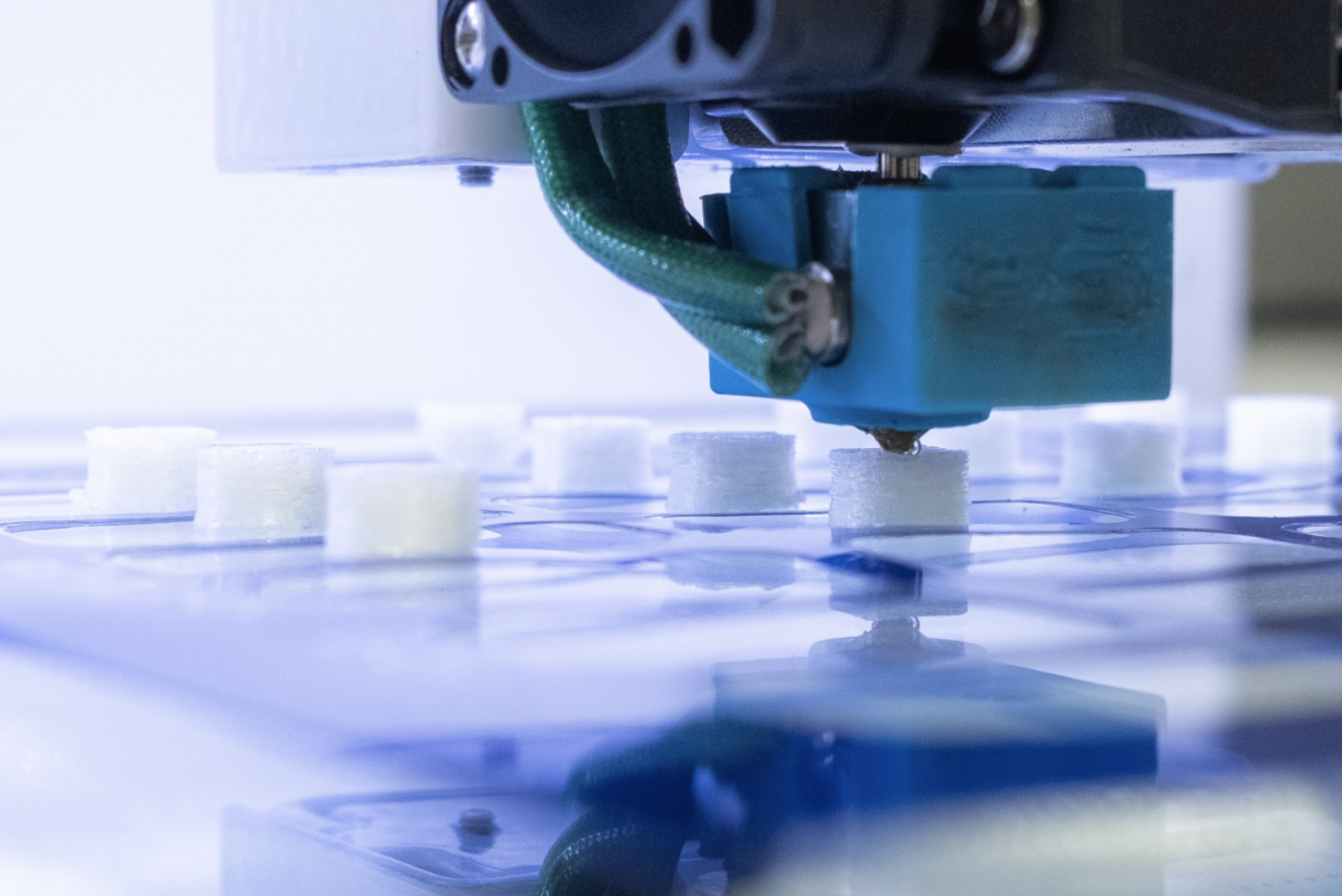FabRx Ltd., the pharmaceutical biotechnology spin-out from University College London (UCL) pioneering 3D printing of pharmaceuticals, has released the first pharmaceutical 3D printer M3DIMAKER for the manufacture of personalised medicines. The novel system was first introduced at the ILMAC Exhibition in Basel (Switzerland) on the 24–27 September 2019. FabRx is thrilled to announce that their cutting edge alternating nozzle 3D printing system, which has been tested in hospitals, pharmacies and research institutes around the world, has now been launched onto the market.
Currently, medicines are produced using mass manufacturing methods, which creates dosage forms with identical characteristics (dosage, appearance and drug release). Such practices can lead to inappropriate dosing, resulting in undesirable side effects or lack of treatment effect in many patient populations (i.e. children and the elderly).
In the case of paediatrics, tablets are often split or crushed to meet dosage requirements, which can lead to errors, inaccuracy and occasionally to the incorrect use of medicines. There is a clear need for age-appropriate formulations, however conventional manufacturing techniques have not made enough progress towards personalised medicines.
Sophisticated 3D printing technologies aim to truly deliver unique personalised medicines with appearance and dosages that can be tailored directly to the patient on demand. The ground-breaking additive manufacturing technology has the capability of producing Printlets (3D printed tablets) with a precise dose and can even combine multiple medications into a single ‘polypill’ for patients with complicated medication regimens.

Fig. 2. The M3DIMAKER printing a number of tablets directly onto pharmaceutical blister packaging
FabRx’s breakthrough 3D printer, M3DIMAKER, consists of a sleek hardware system that is controlled by specialised software, allowing the selection of the required dose by the pharmacist according to the prescription given by the clinician. Incorporation of a modern fingerprint access control alongside a data matrix reader ensures manufacturing reliability, as only qualified personnel will have access to the technology’s outstanding features. Moreover, the system is fitted with advanced in-line quality control procedures alongside camera monitoring of the printing process to track the progress and detect any faults during manufacture.
A choice between three different printing nozzles allows the user to adapt the system to their manufacturing needs. The M3DIMAKER has a large array of applications within drug development (e.g. manufacture of small batches for pre-clinical and clinical studies) as well as clinical practice (personalised medicines). Depending on the medicine being made, the preparation of one-month’s medication (28 printlets) can be carried out in ~8 minutes, revolutionising the drug manufacture timeline.
Dr Alvaro Goyanes, Director of Development at FabRx said: “We are delighted to be launching our state-of-the-art 3D printing system in light of the recommendations from the regulatory organisations into the pharmaceutical market. I truly believe that we are one step closer to personalised medicine thanks to the M3DIMAKER.”
